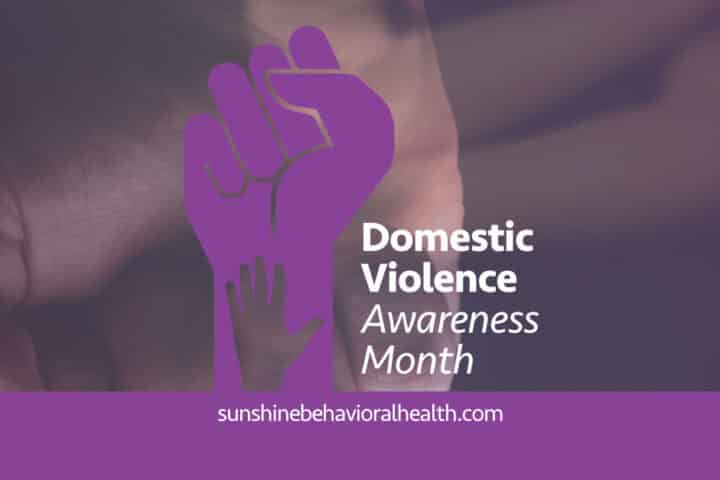
Domestic Violence Awareness Month: Addressing Domestic Violence
Domestic violence harms relationships and families in the short-term. People might suffer physical, sexual, or emotional abuse or a combination of these factors. They might turn to alcohol or drugs to cope with their pain.
Potential Long-Term Consequences of Domestic Violence
But domestic violence can also cause considerable damage years after the abuse occurs. It can haunt people who left violent relationships because they might be afraid that their future partners will also be violent.
Violence in the home can also hurt children who experienced or witnessed such abuse. Years after the abuse, children who grew up in homes with domestic abuse may abuse others themselves or enter relationships with abusive partners.
People with domestic abuse in their pasts might also develop addictions. Like people in currently abusive situations, they could be coping with their emotions by using drugs, alcohol, or tobacco or practicing compulsive behaviors such as gambling, having risky sex, or shopping.
Recognizing and reporting domestic violence
To prevent such outcomes, there are ways to report domestic violence. If you have strong suspicions that domestic violence or other immediate harm is currently occurring, call 911.
If the situation is not an emergency and if you need additional information, consider calling the National Domestic Violence Hotline (The Hotline) or checking out its website to chat live:
- 1-800-799-7233 (1-800-799-SAFE)
- 1-800-787-3224 (TTY)
- 1-855-812-1001 (video phone for callers who are deaf)
- thehotline.org
The Hotline’s site is especially useful if you don’t know about domestic violence and how to approach it. This site even has a drop-down menu called Is This Abuse?
Articles in this section describe elements of abusive relationships and abuse in different communities, such as abuse in the LGBTQ community and among immigrants, disabled people, and pregnant women.
If you or someone you love is experiencing domestic violence, you can contact The Hotline. Doing so will put you in touch with advocates who have experience addressing the problem. They have the compassion and training to help you approach your situation in the safest way possible.
Like addiction and other problems, addressing domestic violence early can prevent larger problems in the future.
Sources
jenniferschneider.com – When Is Domestic Violence a Hidden Face of Addiction?
thehotline.org – Get Help Without Saying a Word
thehotline.org – What Is Domestic Violence?
A Message From Our CEO
Medical disclaimer:
Sunshine Behavioral Health strives to help people who are facing substance abuse, addiction, mental health disorders, or a combination of these conditions. It does this by providing compassionate care and evidence-based content that addresses health, treatment, and recovery.
Licensed medical professionals review material we publish on our site. The material is not a substitute for qualified medical diagnoses, treatment, or advice. It should not be used to replace the suggestions of your personal physician or other health care professionals.





